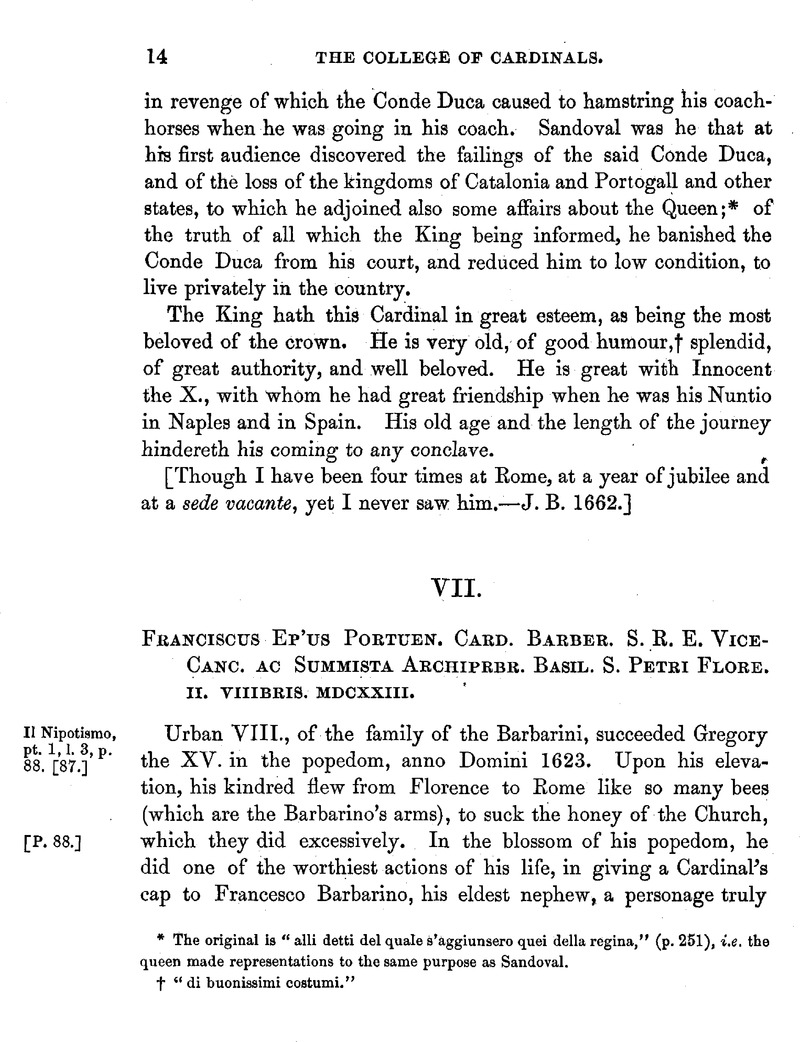No CrossRef data available.
Article contents
VII. Franciscus Ep'us Poetuen. Card. Barber. S. R. E. Vicecanc. Ac Summista Archiprbr. Basil. S. Petri Flore. II. VIIIBRIS. MDCXXIII
Published online by Cambridge University Press: 23 February 2010
Abstract

- Type
- The College of Cardinals
- Information
- Copyright
- Copyright © Royal Historical Society 1867
References
page 15 note * It was not an ambassador, but the Duke of Parma, who, on Urban's speaking to him of “the Cardinal Padrone,” interrupted him, and said, “Most holy Father, for my part I know no other Padrone than your Holiness.” Nipotismo, 101.
page 15 note † i.e. canvassing.
page 16 note * The French ambassador speaks of him as unfavourable to France, but distrusted by the Spaniards, “sapendo quanto che sia capriccioso et amico del suo volere,” p. 25.
page 16 note † “When the Barbarines took away from the Church called the Rotonda [i.e, the Pantheon] that excellent piece of workmanship of bronze (for which we have no name but bell-metal) to make that piece of architecture and pillars which adorn the altar in St. Peter's Church, all the people cried in the streets, Quod non fecerunt Barbari, fecerunt Barbarini; and they thought they had a great deal of reason to exclaim thus against them, because it was certainly affirmed that the Barbarines had diverted about half the metal to their private use in their palace; and some say that they made racks for their chimneys of it, but I scarce believe it.” Nipotismo, 94–5.
page 16 note † “Terzetti sopra i Cardinali dell' Conclave dell' anno 1667,” in “II Sindicato di Alessandro VII.,” p. 289. These lines are quoted in connection with a story that on the death of Alexander VII., Francesco Barberini, “observing new rubs in his way, betook himself to his politics, and prevailed to have the Papacy thrown upon Rospigliosi, that is older and more infirm than he, as not despairing but he may outlive him and have a new push with his pretences.”




